Brexit: UK warned against 'special' deals with member states
- Published
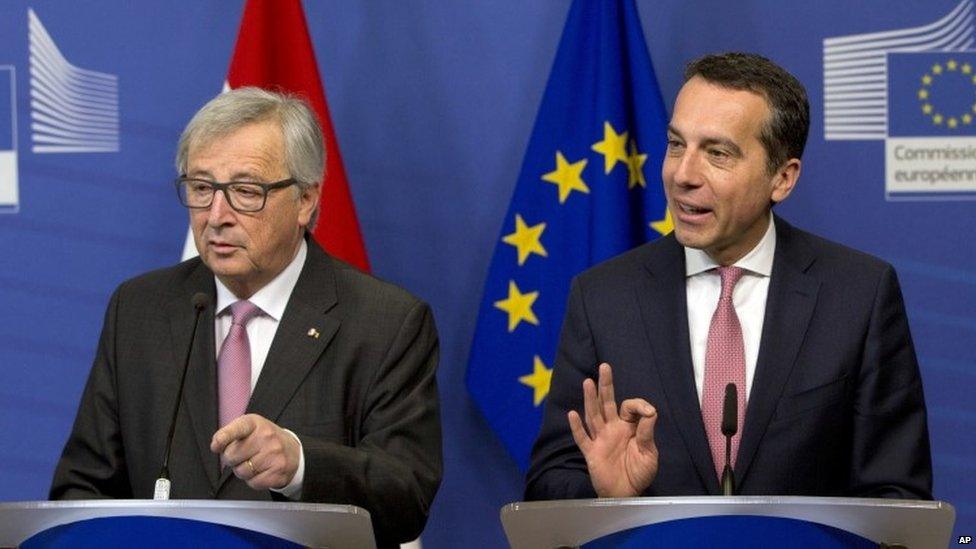
Mr Juncker (left) said there would be no parallel negotiations
The UK should not try to play different EU states off against each other or pursue "special discussions" in key areas, a top EU official has warned.
European Commission president Jean-Claude Juncker said the UK may want to be more "obliging" to certain countries to secure future commercial advantages.
The EU is keen to maintain a united front and conduct central negotiations.
Meanwhile, a leading candidate to be France's next President says he will take a "pretty tough" line on Brexit.
Emmanuel Macron, who opinion polls suggest could win May's election, told Channel 4 News the UK should not be punished for voting to leave the EU but the EU's interests had to be paramount into the upcoming negotiations.
"We have to preserve the rest of the European Union and not to convey the message that you can decide to leave without any consequence," he said.
Official discussions on the terms of the UK's exit and its future relationship with the EU are expected to begin in the Spring once the UK has triggered Article 50 - notifying the union of its intention to leave.
Prime Minister Theresa May has made clear that the UK will leave the EU's single market and wants bespoke commercial and customs agreements based on tariff-free and "frictionless" cross-border trade.
She has also made clear that she is prepared to leave the EU without a formal deal rather sign up to a bad one.
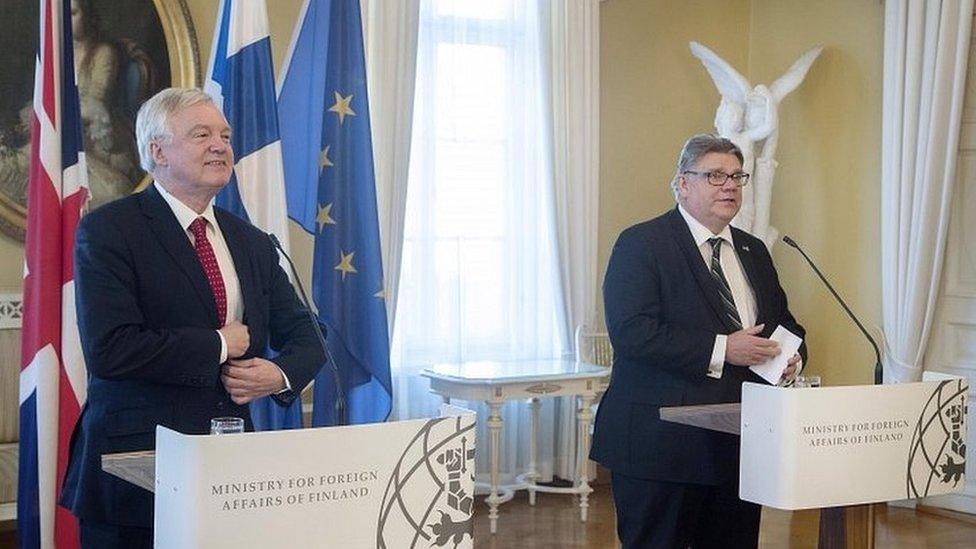
David Davis says the EU and the UK will continue to co-operate in many areas
The final agreement on the UK's exit will need the approval of 20 out of the EU's 27 other member states as well as the support of the European Parliament.
However, a future trade deal could need the backing of all EU states.
There have been suggestions the UK could potentially exploit divisions within the EU over how hard a bargain they are willing to drive.
Several EU leaders have insisted the UK cannot expect a better deal outside the EU than it has now and their priority is to protect the interests of the remaining 27 members. Others have advised against "punishing" the UK.
Speaking after holding talks with Austrian Chancellor Christian Kern, Mr Juncker said there would be no parallel negotiations and the UK would not be allowed to conduct bilateral discussions in key areas such as finance, telecommunications or chemicals.
"A situation could arise whereby the UK might attempt to or wish to be obliging to certain member states in certain economic zones and certain sectors whereby those countries might wish to provide certain advantages to the UK," he said.
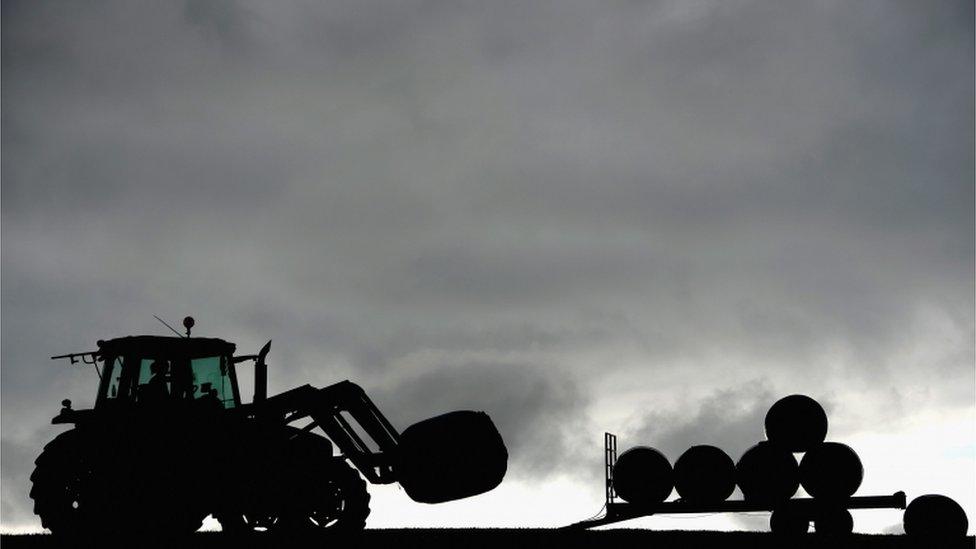
EU subsidies account for about 50% of British farm incomes
"It is in our interests therefore that we don't have any special discussions... with certain individual countries."
Mr Kern said that Europe would not "capitulate" to the UK by granting it a better status than it would enjoy if it was still an EU member.
"If you want to be a member of a club you have better conditions, obviously, than if you want to be outside the club," he said.
The EU's negotiating team will be headed up by former commissioner Michel Barnier.
Speaking during a visit to Finland his UK counterpart, Brexit Secretary David Davis, said he wanted an outcome which was good for the EU as well as the UK.
"We're not talking about a break-up, we're talking about a new relationship, that's what we want to see," he said.
The UK's former ambassador to the EU Sir Ivan Rogers has said the negotiations - which are scheduled to be completed in two years - will be "humungous" in scope.
Preparatory work has been taking place in more than 50 different sectors, spanning manufacturing and services as well as key industries such as farming and fishing.
- Published2 February 2017
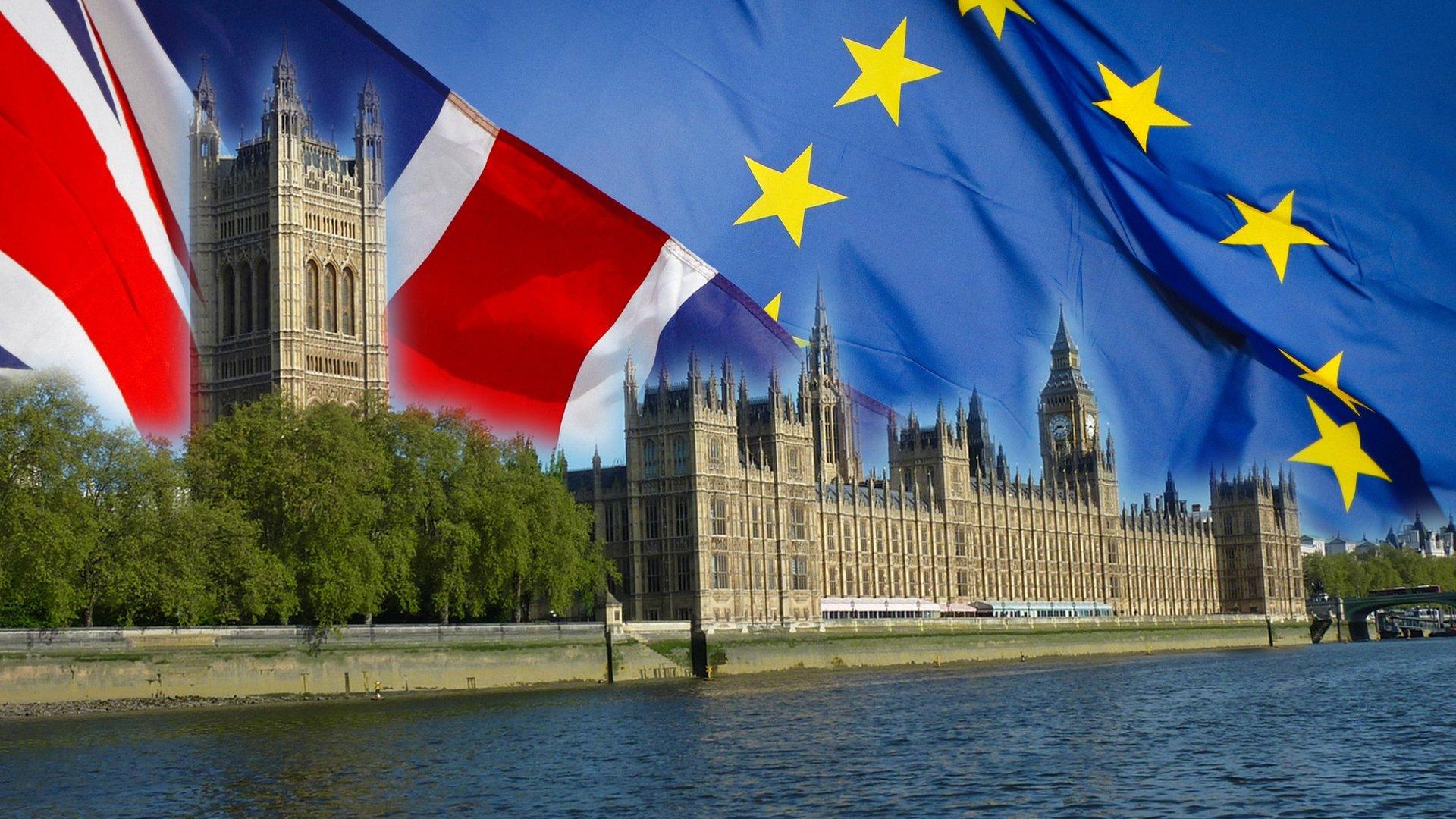
- Published10 February 2017
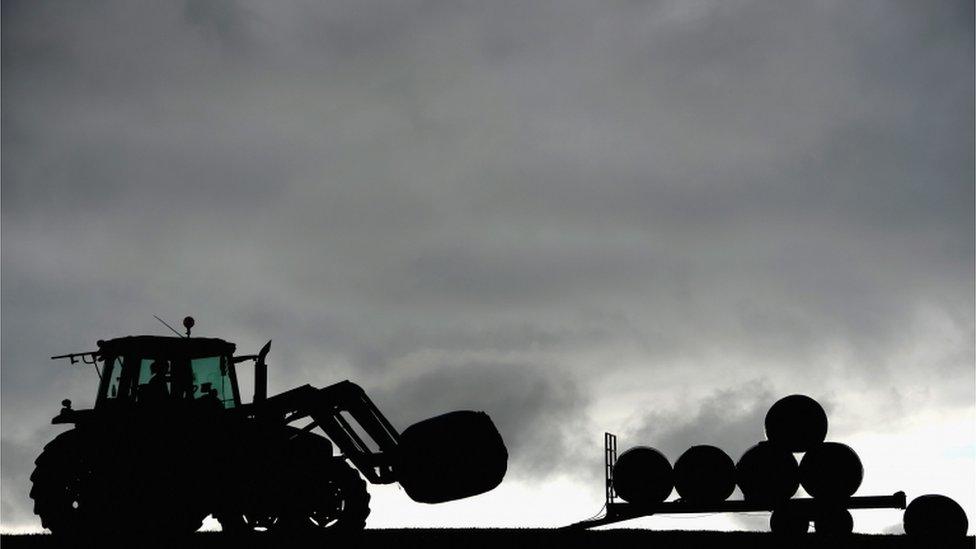
- Published10 February 2017